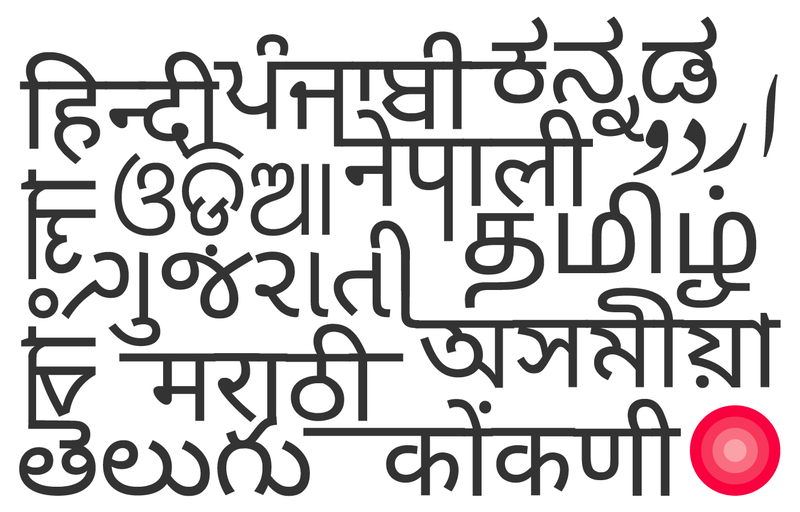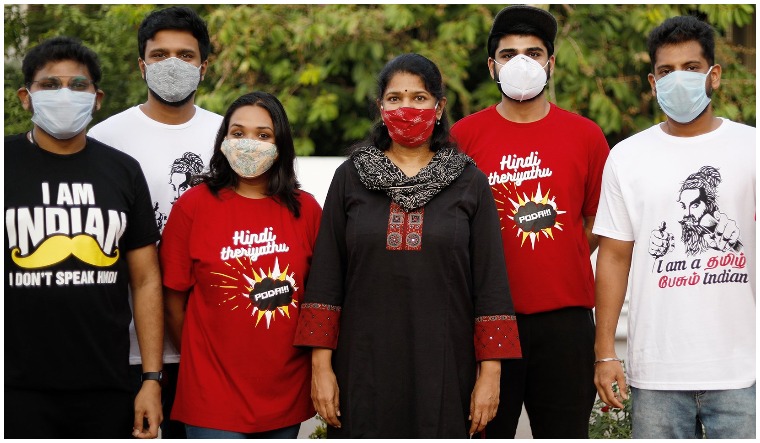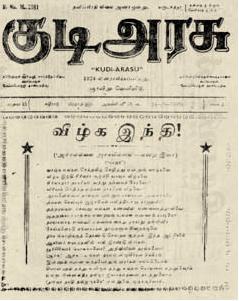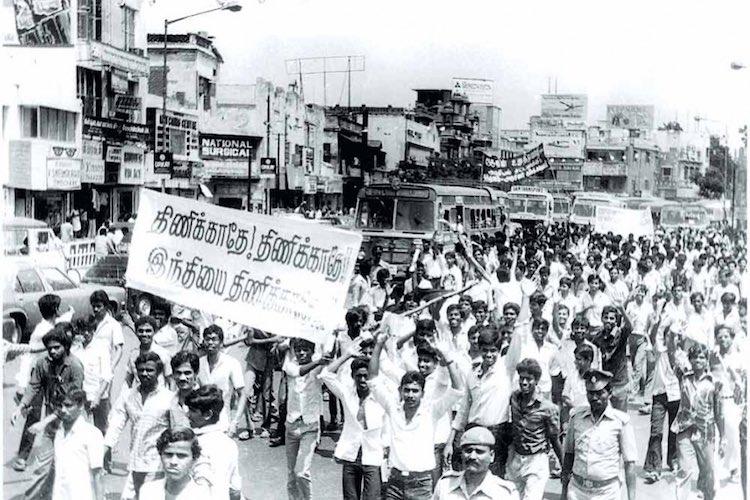
___
***Are you or someone you know in the global Tamil community doing great things? We'd love to feature them: FILL OUT THIS FORM ***
Network & collaborate with Tamil Changemakers from around the world. Request to join our private LinkedIn community here.
___
Tamils have a worldwide presence, with a global population estimated between 80 and 100 million people[1]. Living in all four corners of the world with large diaspora communities, our people have contributed to the development of many nations through our hard work, determination and skill. All of us can trace our lineage back to what is now modern day South India and Northern and Eastern Sri Lanka (தமிழகம்). These are the homelands of our people, where our culture, language and heritage thrived for millennia and continue to do so.
The majority of Tamils living in India are from the state of Tamil Nadu (தமிழ்நாடு), literally meaning “Tamil Country”. Today, Tamil Nadu is one of the best-governed states in India in terms of equity, growth, and sustainable development[2]. Tamil Nadu is also known for its strong stance on the protection and use of the Tamil language in the state, opposing recent and longstanding movements towards the imposition of Hindi as the language for national use throughout India[3]. This does not mean that Tamil Nadu is against learning Hindi or other languages; rather, Tamil Nadu views the movement of Hindi as a national language as an indirect way to force another language onto its people, making the Tamil language second-tier as a result[4].
In recent times on social media, the hashtag #HindiTheriyadhuPoda (இந்தி தெரியாது போடா) and the phrase I am a தமிழ் பேசும் Indian have taken prominence highlighting the point that many Tamils who do not speak Hindi are Indian just like any Hindi language speaker. Not knowing Hindi, therefore, should not put into question nationality[5]. Why is there an on-going push for Hindi by the central government and an on-going resistance by Tamil Nadu? Why is there an on-going debate that is occasionally revived on the issue of language in India and what could this potentially mean for the future of Tamil Nadu linguistically and at large?

The Anti-Hindi agitations of Tamil Nadu (இந்தித் திணிப்பு எதிர்ப்புப் போராட்டம்) were a series of mass protests, riots and political movements against the official status of Hindi in Tamil Nadu during the pre- and post-independence periods[6]. The first of these agitations took place in 1937-38 when Chief Minister Rajiji (சக்கரவர்த்தி இராஜகோபாலாச்சாரி) issued a government order making Hindi a mandatory subject in secondary schools in the Madras Presidency[7]. In response, Periyar (ஈரோடு வெங்கடப்பா இராமசாமி) and Panneerselvam (அன்னாசாமி தாமரைச்செல்வம் பன்னீர் செல்வம்) of the opposition started statewide protests, including fasts, picketing, protest marches, and many other events to oppose Hindi as a mandatory subject in Tamil Nadu schools[8][9].

Periyar's paper in 1939, headlining the call against the Hindi imposition
The agitations also marked anti-Brahmin sentiments, where it was believed that the Brahmins were attempting to impose Hindi on the population over Tamil[10]. With the start of the Second World War a few years later and the government resigning over India’s involvement in the war, the Hindi order was withdrawn, making Hindi an optional language to be learned in school[11].
WATCH NEXT:
**Looking to create your love story? Join the other couples who have dated and got married through myTamilDate.com!***
Following Indian Independence, a series of events took place in the 1960s that continued the anti-Hindi imposition movement. In 1963, the central government continued its efforts in propagating Hindi as the primary official language of India by using wording under section 3 of the Official Languages Act that the English language may be used instead of shall be used in addition to Hindi[12]. The argument brought forward by CN Annadurai (காஞ்சீவரம் நடராசன் அண்ணாதுரை), leader of the DMK (திராவிட முன்னேற்றக் கழகம்) party, was that if it may be used, then it may not be used in future administrations. Annadurai wanted to maintain English as the official language so that all linguistic groups have an equal footing. The wording was not changed and was passed in Parliament, resulting in massive protests against the imposition of Hindi[13].

Anti-Hindi protests spread throughout Tamil Nadu, mainly at colleges and universities. Continuous rioting took place throughout the state, with lots of damage done on properties and self-immolation resulting in many taking their lives in the name of language[14]. In 1967, an Amendment was introduced to modify the Official Languages Act to guarantee the “virtual indefinite policy of bilingualism” in official transactions[15]. Even with this in place, successive agitations still took place either to promote Hindi as a language with a special status in India or to introduce English as the sole official language so that all states have a common lingua franca. These agitations and debates continue to this very day, spoken by politicians and the people of Tamil Nadu alike.
மொழிப் போர்தியாகிகள் மண்டபம் - Memorial for those who died during the 1960s agitations
Tamil Nadu has governed itself in such a way that it does not allow Hindi to entrench on its society, protecting the Tamil language and culture. The Tamil Nadu government is not discouraging its citizens from learning other languages at all, as there are Tamils who speak Hindi and other languages living all throughout India. The Tamil Nadu government has instilled self-pride in a linguistic and cultural sense in its people that has lasted over 50 years[16]. That pride I believe is found in all Tamils throughout the world, regardless of national origins.
Our people have given an immense amount of cultural richness to the world, through art, music, literature, religion and intellectual thought. The Tamil language is one of the oldest living languages in the world with an astronomical amount of vocabulary and grammar. In being a part of this lineage of such a rich heritage of our people, that sense of pride in continuing to preserve and use our language and practice our culture will not be lost. This, I believe, is one of the roots of the anti-Hindi movement; in appreciating and learning other languages and cultures while preventing their imposition upon us, the anti-Hindi imposition movement is a demonstration of resisting linguistic dominance and instilling the notion that language learning should be done out of interest and free-will, not by force.
[1] Anthony Goreau-Ponceaud. India and Tamil nationalism in a post-Tamil Tiger world: Panel N14 "Breaking India: Centrifugal forces and the Indian nation", 17th Annual ASN World Convention. 17th Annual ASN World Convention, Apr 2012, Harriman Institute, Columbia University, New-York, United States. ⟨halshs-00703310⟩
[2] https://www.thehindubusinessline.com/news/national/tamil-nadu-adjudged-the-second-best-governed-state/article32992802.ece
[3] https://www.dtnext.in/News/TopNews/2019/06/07024020/1141229/Why-Tamil-Nadu-fought-to-protect-its-language-legacy.vpf

met on myTamilDate
 Toronto,
Canada
Toronto,
Canada
 Toronto,
Canada
Toronto,
Canada
 Toronto,
Canada
Toronto,
Canada























